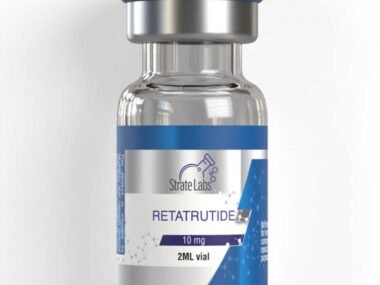When it comes to health and vitality, testosterone plays a major role in both men and women, though it’s commonly discussed in the context of male health. The “male hormone,” testosterone, is critical for regulating muscle mass, bone density, red blood cell production, mood, and libido.
As we age, it’s natural for testosterone levels to decline gradually. However, a huge drop can have real impacts on everyday life. Understanding the signs of low testosterone is the first step toward addressing it effectively. In this article, we’ll explore how to recognize the symptoms of low testosterone and what you can do about it.
What is Low Testosterone?
Low testosterone, medically referred to as hypogonadism, occurs when the body doesn’t produce enough of the hormone. Testosterone levels peak during adolescence and early adulthood, then begin to decline around age 30. While this decline is normal, some individuals experience a sharp drop, leading to noticeable symptoms.
A blood test is the only way to confirm low testosterone levels, but several signs could prompt you to consult a healthcare provider.
Common Symptoms of Low Testosterone
1. Low Energy and Fatigue
One of the most common early signs of low testosterone is a persistent feeling of fatigue. If you’re getting enough sleep but still wake up tired or find yourself dragging through the day, hormone levels could be a contributing factor.
2. Decreased Libido
Testosterone plays a necessary role in sexual health. A sudden or gradual decline in sex drive can be a strong indicator that your levels are lower than they should be. This symptom is often one of the most distressing, but also one of the most treatable.
3. Erectile Dysfunction
While many factors can contribute to erectile dysfunction, low testosterone can reduce the frequency of spontaneous erections, such as those during sleep. If this is paired with a lack of interest in sexual activity, low testosterone might be the root cause.
4. Mood Changes and Depression
Hormones influence mood regulation. Men with low testosterone often report feelings of sadness, irritability, or even depression. Some also experience difficulty concentrating or remembering things clearly.
5. Loss of Muscle Mass and Increased Body Fat
Even if you’re maintaining your usual diet and exercise routine, low testosterone can result in a loss of muscle mass. Also, you might notice an increase in body fat, especially around the abdomen. These physical changes can be discouraging and may further impact emotional well-being.
6. Reduced Bone Density
Though less obvious, testosterone supports bone health. Over time, low testosterone can lead to weaker bones and a higher risk of fractures, particularly in older men.
7. Hair Loss
While genetics also plays a major role, testosterone contributes to hair production. A noticeable increase in hair shedding or bald patches could be another sign of declining hormone levels.
Risk Factors to Watch For
Certain conditions and lifestyle choices can increase your risk of developing low testosterone, including:
- Obesity
- Type 2 diabetes
- Chronic stress
- Excessive alcohol consumption
- Sleep apnea
- Injury or infection affecting the testicles
If any of these apply to you, it’s necessary to take note of how you feel physically and emotionally.
The Importance of Testing and Diagnosis
The symptoms of low testosterone can overlap with other health issues; a blood test is essential for an accurate diagnosis. Your healthcare provider may measure your total testosterone levels, typically in the morning when they are at their highest.
Normal testosterone levels range from about 300 to 1,000 nanograms per deciliter (ng/dL). If your levels fall below this range and you’re experiencing symptoms, your provider might recommend treatment options ranging from lifestyle changes to hormone replacement therapy (HRT).
Natural Ways to Support Healthy Testosterone Levels
While hormone replacement therapy is a valid and effective option for many, some people prefer to start with lifestyle adjustments. Here are a few science-backed strategies that may help boost or maintain healthy testosterone levels:
- Strength Training:Regular resistance workouts have been shown to elevate testosterone levels naturally.
- Quality Sleep:Aim for 7–9 hours of uninterrupted sleep each night. Poor sleep hygiene can wreak havoc on hormone balance.
- Balanced Diet: Foods rich in zinc, vitamin D, and healthy fats (like those from avocados and nuts) can support testosterone production.
- Stress Management: Chronic stress raises cortisol, which can negatively impact testosterone.
- Limit Alcohol and Processed Foods:Excessive alcohol and poor diet choices are linked to hormonal imbalances.
For those looking for additional support, lifestyle-focused platforms such as Feel30 offer wellness guidance and tools geared toward optimizing men’s health, including hormone health. While not a replacement for medical treatment, these resources can complement your journey to feeling your best.
When to Seek Help
If you’re experiencing multiple symptoms listed above, it’s time to have a conversation with your doctor. Many men suffer in silence, attributing their low energy or lack of motivation to aging or stress. But low testosterone is a medical condition, and one that is very treatable.
With the right support, medical or lifestyle-based, many men see drastic improvements in their energy, mood, and overall well-being.
Final Thoughts
Low testosterone isn’t just about aging; it’s about how you feel in your body every day. If something feels off, trust your instincts and consider getting tested. Recognizing the signs early allows you to take proactive steps to protect your health and quality of life.
If you’re lifting weights, cleaning up your diet, or exploring resources, remember: your health journey is your own. You deserve to feel strong, focused, and alive at every age.










